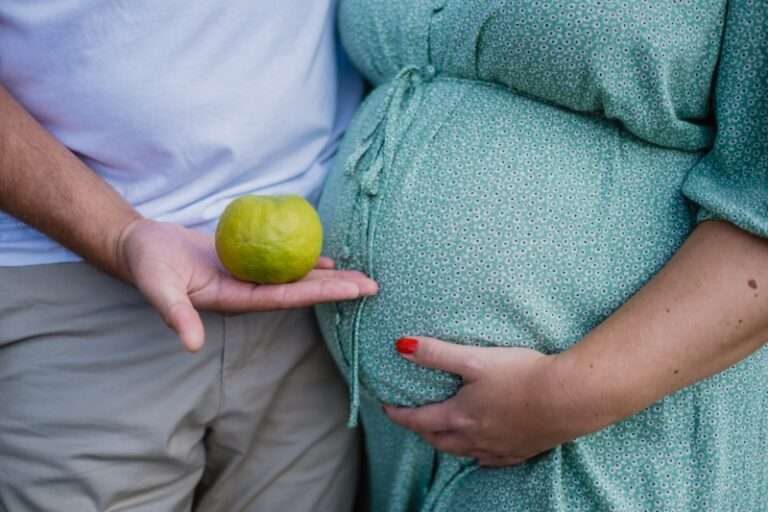Pregnancy is an exciting and life-changing experience for many women. It’s also a time when women need to be extra mindful of their health and nutrition. Eating well during pregnancy is essential for the health of both mother and baby, as it helps to ensure that the baby receives all the nutrients it needs for proper growth and development.
In this article, we’ll discuss the benefits of eating well during pregnancy, what you need to know about nutrition during pregnancy, and how to make sure you’re getting all the nutrients you need.
Table of Contents
The Benefits of Eating Well During Pregnancy
Eating a healthy diet during pregnancy has numerous benefits for both mother and baby. Here are some of the most important ones:
Improved Fetal Development:
Eating a balanced diet helps ensure that your baby gets all the essential vitamins, minerals, proteins, carbohydrates, fats, and other nutrients they need for proper growth and development in the uterus.
Reduced Risk Of Birth Defects:
Eating a healthy diet can help reduce your risk of having a baby with birth defects such as spina bifida or neural tube defects by up to 70%.
Reduced Risk Of Preterm Birth:
Eating well can help reduce your risk of preterm birth by up to 40%.
Improved Maternal Health:
Eating well can help improve your overall health by providing essential vitamins and minerals that are important for maintaining energy levels throughout your pregnancy as well as helping prevent common ailments such as morning sickness or constipation. What You Need To Know About Nutrition During Pregnancy
Foods Choices Matter
Increase Your Calorie Intake:
During pregnancy, it’s important to increase your calorie intake slightly in order to provide enough energy for both yourself and your growing baby. The recommended daily caloric intake is 2200-2500 calories per day depending on how active you are (more active women may require more calories).
Eat A Variety Of Foods From All Food Groups:
It’s important to eat from all five food groups (grains/starches; fruits; vegetables; dairy products; proteins) in order to get all the essential vitamins, minerals, proteins, etc., that you need during this time period.
Eat Healthy Fats And Avoid Trans Fats:
Healthy fats such as olive oil or avocados should be included in your diet while trans fats should be avoided at all costs due to their negative effects on fetal development (trans fats have been linked with an increased risk of birth defects).
Limit Caffeine Intake:
Caffeine should be limited during pregnancy due to its potential effects on fetal development (it has been linked with an increased risk of miscarriage). The recommended limit is 200mg per day which equates to roughly two cups of coffee or four cups of tea per day.
Take A Prenatal Vitamin:
Taking a prenatal vitamin every day will help ensure that you get enough folic acid which is essential for preventing neural tube defects in babies (it has also been linked with improved cognitive function later in life).
Stay Hydrated:
Staying hydrated throughout your pregnancy is extremely important as dehydration can lead to fatigue, headaches, dizziness, constipation, etc., none of which are desirable side effects. Aiming for 8-10 glasses per day should suffice but if exercising then more may be required depending on how much sweat is lost through exercise.
Avoid Unpasteurized Dairy Products And Raw Fish:
Unpasteurized dairy products such as soft cheeses have been linked with listeria infection which can cause serious complications if contracted while pregnant so these should be avoided at all costs! Similarly raw fish carries risks due to its potential contamination from parasites so sushi lovers beware.
How To Make Sure You’re Getting All The Nutrients You Need During Pregnancy?
Eat Regularly and Don’t Skip Meals
Skipping meals can lead to not only low blood sugar levels, but also deprive both you and your fetus of vital nutrients needed throughout this period. Try not to skip meals where possible! Aiming for three meals plus two snacks per day should suffice, although more may be required depending on activity levels/appetite etc.
Choose Whole Foods Over Processed Foods
Whole foods contain more fiber, vitamins, minerals, etc., than processed foods do so aim where possible to choose whole foods over processed ones e.g brown rice over white rice; sweet potatoes over French fries; fresh fruit over canned fruit, etc.
Get Creative With Your Meals
Don’t just stick with one type of meal plan; try mixing things up by trying new recipes/combinations e.g adding spinach leaves into omelets making smoothies out of fresh fruit, adding nuts/seeds into salads, etc. This will not only make meal times more enjoyable but also add variety to nutrient intake!
Listen To Your Body
If feeling tired then rest. If craving something sweet then go ahead and indulge once every now and again. Just remember moderation is key here.
Talk To A Dietician
If still unsure what the best eating plan is then consider talking to a qualified dietician who will be able to advise further based on individual needs and requirements.
In conclusion, Eating well during pregnancy is incredibly important in order to ensure good health for both the fetus as well as maternal health too. By following the tips outlined above hopefully, you now have a better understanding of what entails eating well whilst pregnant plus ways to make sure you are getting the right amount of nutrients needed at each stage of your journey.

